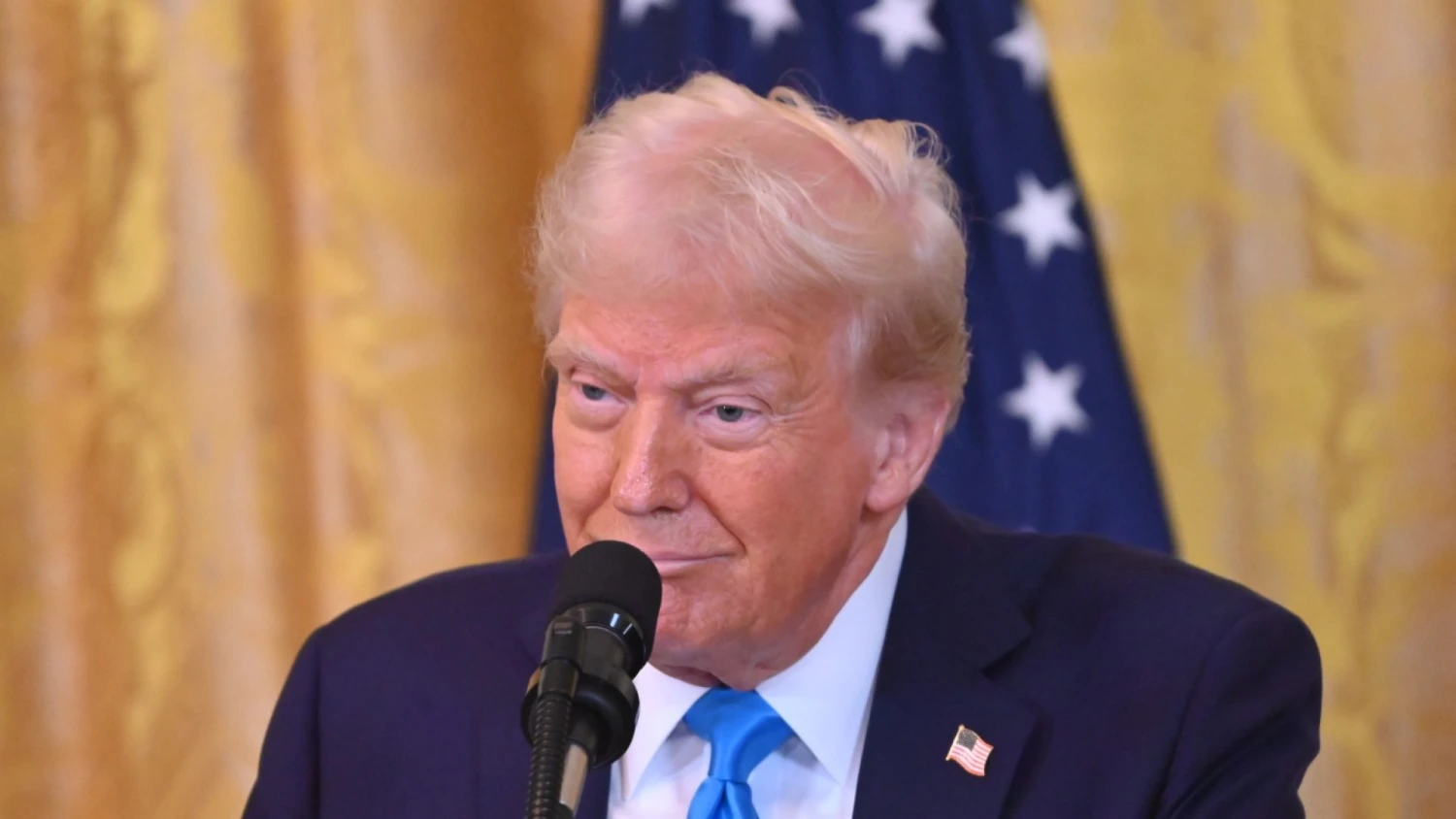Former U.S. President Donald Trump has ignited a political firestorm with his latest proposal: a U.S.-led redevelopment of war-ravaged Gaza into a luxurious coastal destination, dubbed the “Riviera of the Middle East.” The controversial suggestion, which involves relocating Palestinians elsewhere, has drawn outrage from global leaders and reignited longstanding tensions in the region.
Trump, a real estate mogul turned politician, unveiled the idea as part of his first major foreign policy stance since returning to the White House. His vision involves transforming Gaza, devastated by over 15 months of Israeli airstrikes that have claimed more than 47,000 Palestinian lives, into a high-end tourist hub. His plan, however, offers little clarity on the fate of the millions currently residing in the enclave.
While Trump has not detailed whether he intends to push forward with this contentious plan or if it’s merely a high-stakes negotiation tactic, he has expressed intentions to visit Gaza, Israel, and Saudi Arabia in the near future—though no timeline has been set.
Middle East analysts suggest that Trump’s proposal could be an attempt to pressure Arab nations into supporting Israeli-Saudi normalization efforts. Michael Milshtein, a former Israeli intelligence official and expert on Hamas, noted that the initiative might be designed to test regional reactions.
“This could be a way to coerce Arab states into compliance, ensuring they don’t obstruct his broader diplomatic ambitions,” Milshtein said.
Trump’s announcement, made during Israeli Prime Minister Benjamin Netanyahu’s visit to the White House, provided no specifics. Netanyahu sidestepped commenting directly on the proposal but commended Trump for his willingness to think outside the box.
Fierce Opposition from the Region
Jordan’s King Abdullah swiftly rejected any plans that would result in land annexation or the forced displacement of Palestinians. Egypt, too, dismissed any notions of Palestinians being pushed out of Gaza, instead advocating for reconstruction efforts that allow them to remain in their homeland.
On the ground in Gaza, the reaction was one of defiance. Among the ruins of his shattered home, Samir Abu Basel dismissed the proposal outright.
“Trump can take his money, his ideas, and his arrogance somewhere else,” he said. “We are not leaving. We are not one of his business assets.”
The announcement sent shockwaves through diplomatic circles. Global powers reiterated their commitment to the long-standing two-state solution, which envisions Gaza as part of a future Palestinian state. Washington’s traditional stance had supported this model for decades, and Trump’s abrupt deviation from it has further unsettled allies.
A Pattern of Expansionist Rhetoric
Since his return to office, Trump has floated similarly provocative ideas, including suggesting U.S. control of Greenland, asserting potential American authority over the Panama Canal, and even declaring Canada should become the 51st U.S. state.
Critics argue that such rhetoric dangerously echoes historical imperialism, with potential consequences beyond the Middle East. Some fear it could embolden Russia’s actions in Ukraine or provide China with justification for aggressive moves against Taiwan.
Hamas, which governed Gaza before its latest conflict with Israel, derided Trump’s remarks as “beyond absurd.” Senior Hamas official Sami Abu Zuhri warned that such provocations could inflame the region further.
Displacement Concerns
Adding fuel to the fire, Trump’s former senior advisor and son-in-law, Jared Kushner, previously described Gaza as “valuable waterfront real estate.” On Tuesday, Trump took it a step further, openly advocating for the permanent resettlement of over two million Palestinians.
The proposal also raises questions about whether Saudi Arabia might reconsider its stance on normalizing ties with Israel. Trump has expressed a desire for Riyadh to join the Abraham Accords, following in the footsteps of the UAE and Bahrain. However, Saudi officials reiterated their firm opposition to any plan that displaces Palestinians from their land, directly contradicting Trump’s claims that Riyadh had softened its stance.
Israeli hardliners, including far-right politician Itamar Ben Gvir, welcomed the idea, arguing that encouraging Palestinians to leave Gaza was the “only viable solution” post-war.
Memories of the Past, Fears for the Future
For many Palestinians, Trump’s remarks evoke painful memories of the 1948 Nakba, or “catastrophe,” when hundreds of thousands were forced from their homes during the creation of Israel.
Um Tamer Jamal, a 65-year-old mother of six, said her family has lived through decades of upheaval and refuses to be uprooted again.
“We’ve taught our children that this land is their home,” she said. “We will never allow another Nakba.”
![]()
